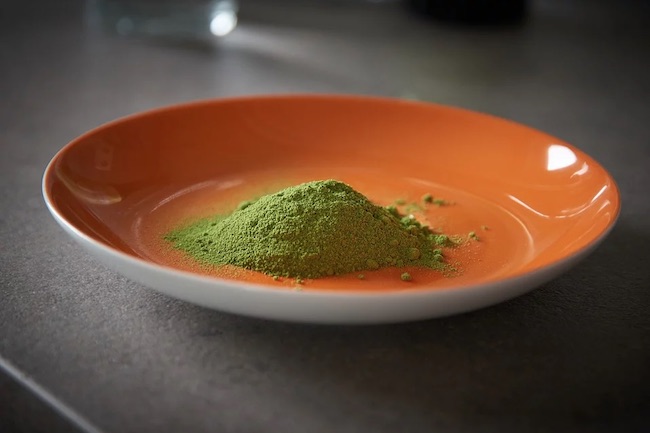MORINGA CONTAINS ALL ESSENTIAL AMINO ACIDS YOUR BODY NEEDS by Dr. Joseph Mercola for Mercola
There are 20 basic amino acids that make up the proteins in your body. In other words, amino acids are the building blocks of proteins. Conversely, when your body breaks down or digests proteins, amino acids are what’s left behind.
Nine of these — histidine, isoleucine, leucine, lysine, methionine, phenylalanine, tryptophan, threonine and valine — are considered “essential” as none of them are made by your body and therefore must be obtained from your diet.
Three of these essential amino acids — leucine, isoleucine and valine — are known as branched-chain amino acids (BCAA) because they have a branched molecular structure. While most amino acids are broken down in your liver, BCAAs are broken down primarily in your muscle. As such, they help improve exercise performance and reduce the breakdown of muscle.
Beef is one dietary protein source, containing 18 different amino acids, including the nine essential ones. Eggs are another excellent source of all nine essential amino acids, plus another nine nonessential amino acids.
However, protein is also found in plant foods. Moringa (Moringa oleifera), also known as horseradish tree or drumstick tree, is an excellent protein source, containing 30.3% crude protein and, according to the African Journal of Biotechnology, 19 amino acids, including all nine essential amino acids.
Moringa also contains beneficial fatty acids (44.57% being a-linolenic acid), beta-carotene, phenolics, zeatin, quercetin, beta-sitosterol, kaempferol, flavonoids and isothiocyanates.
Many of the health benefits of Moringa — which include the prevention and treatment of inflammatory diseases, neurodysfunctional diseases, diabetes and cancer — are attributed to its glucosinolate and isothiocyanate content. The isothiocyanate moringin, for example, has been shown to have potent anti-inflammatory and cytoprotective effects.
Health Effects of Essential Amino Acids
As detailed in several research articles including the journal Amino Acids, the nine essential amino acids — all of which are found in Moringa — have important biological roles, including the following:
| Isoleucine — Helps stabilize your blood sugar and is required, along with leucine and valine, for muscle synthesis, repair, energy and endurance. |
| Leucine — Helps lower blood sugar that is elevated and triggers the production of growth hormone. Along with isoleucine and valine, leucine promotes the growth of muscle, bone and skin. |
| Valine — Helps maintain muscle metabolism and nitrogen balance. It’s also used in tissue repair and energy production. |
| Lysine — Is needed in the production of hormones, collagen, enzymes and antibodies. It also helps combat viruses and plays a role in calcium assimilation and protein construction in bones and muscle. |
| Methionine — Is converted into cysteine and vice versa, based on the needs of your body. It’s also a primary source of sulfur in your body, which is required for healthy hair, skin and nails. |
| Tryptophan — Aids in the production of niacin (vitamin B3), which is required for serotonin and melatonin production. |
| Phenylalanine — Plays a role in memory formation and nervous system function, and helps reduce inflammation. |
| Threonine — Important for healthy cardiovascular system, central nervous system, immune system and liver function. It also plays a role in the digestion of fats, and promotes healthy collagen, muscle tissue, skin and bones. |
| Histidine — Required for red and white blood cell production, and aids in tissue repair. Importantly, histidine helps protect your nerves by maintaining the myelin sheath around them. |
Certain amino acids also help improve the antioxidant properties of peptides. Peptides are strings of amino acids that are shorter than those making up proteins. Due to their smaller size, peptides are broken down more easily than proteins, and have been shown to have antioxidant activity.
As described in the paper “Amino acid composition and antioxidant properties of Moringa oleifera seed protein isolate and enzymatic hydrolysates:”
“Some of these amino acids, especially Tyr [tyrosine], Met [methionine], His [histidine] and Lys [lysine] have been shown to play specific roles in improving antioxidant properties of peptides.
Besides, aromatic amino acids with a large side group such as His … and Trp [tryptophan] … contribute to the antioxidant potency of peptides because they act as hydrogen donors.
According to Sarmadi, the interaction of peptides with lipids or entry into target organs can be enhanced by the hydrophobic properties, which helps in promoting the antioxidant effects of peptides.”




